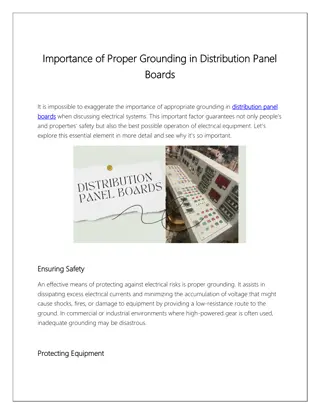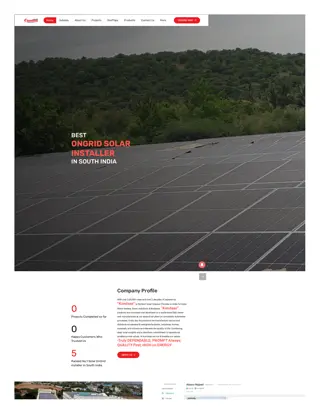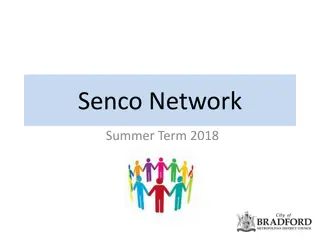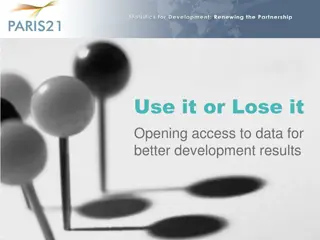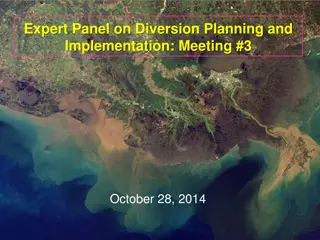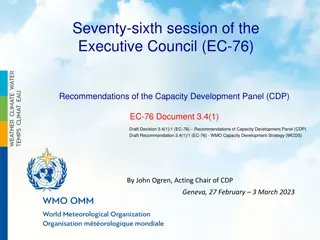Understanding Panel Discussions: A Comprehensive Overview
Exploring the concept of panel discussions, this presentation delves into the definition, purpose, format, and key elements involved in conducting a successful panel session. From the roles of panelists and moderators to the dynamics of engaging with an audience, this resource provides insights into creating engaging and informative panel discussions across various formats and settings.
Download Presentation

Please find below an Image/Link to download the presentation.
The content on the website is provided AS IS for your information and personal use only. It may not be sold, licensed, or shared on other websites without obtaining consent from the author. Download presentation by click this link. If you encounter any issues during the download, it is possible that the publisher has removed the file from their server.
E N D
Presentation Transcript
SeminarPpt.com Seminar on Panel Discussion Submitted to: Seminarppt.com Submitted By Seminarppt.com
Table Contents Definition Introduction What is Panel Discussion? NOT in Panel Discussion Steps in Panel Discussion Conclusion 2
Definition A panel discussion is a specific format used in a meeting, conference, or convention. 3
Introduction It is a live (or recorded), in-person, virtual, or hybrid discussion about a specific topic amongst a selected group of experts who share differing perspectives in front of an in- person, virtual, or geographically dispersed audience. The main purpose of a panel discussion is for the panelists to share their wisdom and provide insights to create real value and takeaways for the audience. 4
What is Panel Discussion? A panel discussion is typically facilitated by a skilled panel moderator who guides the panel and the audience through a lively conversation about a specific topic. The panel session typically lasts for 60-90 minutes. 6
What is Panel Discussion? The panelists are a group of people typically 3-4 experts or practitioners in the field, who share facts, offer opinions, and responds to audience questions either through questions curated by the moderator or taken from the audience directly. 7
What is Panel Discussion? It can be produced to be in front of a live audience or recorded for replay, shown in- person or remotely, with the moderator and panelists in one location or attending remotely, and with the audience in one physical room, or virtually (otherwise known as geographically dispersed ). 8
NOT in Panel Discussion A set of presentations, one after another. The panel format allows for a brief introduction and then discussion among the panelists and audience. If the majority of the panel agenda is centered around presenting information, then just give each panelist a speaking slot with a Q&A after each speaker. 9
NOT in Panel Discussion A one-on-one interview with each panelist. Many untrained moderators simply ask questions of each panelist, one after another, rather than build the dialogue into a conversation. Unless you create interplay among the panelists, create a format that includes an up close and personal interview with each speaker. 10
NOT in Panel Discussion Just Q&A from the audience. When the focus is completely on answering the audience s questions, you have a forum or town hall meeting. Not that any of these formats are bad; they are simply different than a panel. Just call it like you see it, be it a panel, presentation, interview, or forum. 11
NOT in Panel Discussion Use a panel discussion when you believe the group of panelists will generate something more interesting than any one individual panel member could generate on his/her own. 12
Steps of Panel Discussion Step 1: Clarify the vision Whoever asked you to moderate the panel discussion probably has a pretty good idea of the topic(s) they want to be covered, who should be on the panel, the date, start time, duration, and the location. Beyond these basics, the world is your oyster! 13
Steps of Panel Discussion Step 2: Select, invite and confirm the panelists If your panelists have not been selected yet, give some deep thought about who and how many you should invite. Three to four topic experts, experienced practitioners, or beneficiaries make for a robust conversation. (I like to ask four, knowing that you may have a last-minute cancellation.) 14
Steps of Panel Discussion Step 3: Prepare an engaging format Selecting an engaging format and structure of the panel is at the core of preparing for a great panel discussion. By using the vision as the springboard to creativity, think through how you can open the panel with pizazz, introduce the panelists, ask provocative questions, conduct audience Q&A, and close the panel. 15
Steps of Panel Discussion Step 4: Start with a strong opening The first few minutes of your panel discussion are absolutely critical. Although people shouldn t judge a book by its cover, they do. While every audience has a different personality, they all want to know they re in good hands; they need to know you care about them and they can trust you to deliver. 16
Steps of Panel Discussion Step 5: Facilitate a lively conversation The heart of the panel discussion is the lively conversation between the panel moderator, the panelists, and the audience. While the moderator has prepared a list of questions, a skilled facilitator keeps the conversation flowing and intervenes appropriately when things get off track. 17
Steps of Panel Discussion Step 6: Sprinkle in audience Q&A You don t need to save Q&A for the tail-end of the panel discussion. You can take audience questions as you go, or dedicate specific times throughout the session to take questions. 18
Steps of Panel Discussion Step 7: Finish with a clarion call to action Nick Morgan wrote a fabulous book called Give Your Speech, Change the World. I believe the same thing holds true with panel discussions. What s the point if you don t want the audience to think, feel, or do something as a result of your time together? 19
Conclusion A panel session is a specific format that involves a group of people who exchange insights and views in a meeting or conference. These experts typically discuss a topic in person or online. 21
References Wikipedia.org Google.com Seminarppt.com Studymafia.org





